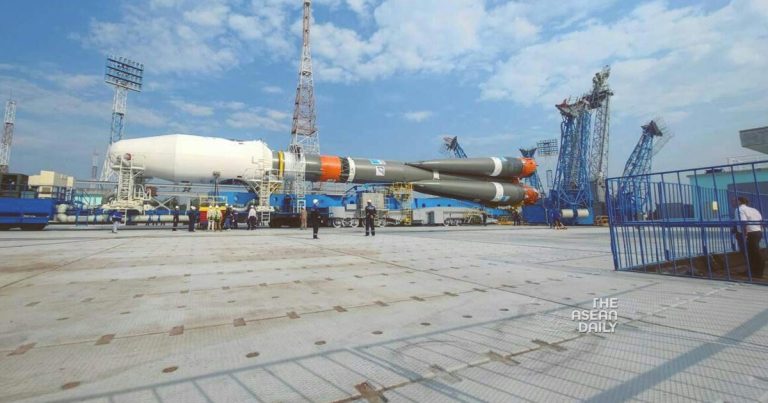11-8-2023 (MOSCOW) Vostochny Cosmodrome, August 12, 2023 – With a history steeped in space exploration, Russia embarked on a remarkable journey as it launched its maiden lunar probe in nearly half a century on Friday. The Luna-25 mission seeks to invigorate the nation’s space sector, which has wrestled with challenges and endured isolation due to the ongoing conflict in Ukraine.
Marking Moscow’s triumphant return to lunar exploration, the Luna-25 probe’s launch heralds a resurgence reminiscent of its pioneering days when the USSR charted new frontiers in space exploration.
Against the backdrop of the Vostochny Cosmodrome, the Luna-25 probe gracefully ascended at 02:10 am Moscow time (2310 GMT Thursday), a spectacle witnessed through the lens of live imagery broadcast by the esteemed Russian space agency, Roscosmos.
Anticipation surrounds the spacecraft’s upcoming journey, set to culminate in lunar orbit five days from now. Once established in orbit, a meticulous selection process spanning three to seven days will ensue, pinpointing the optimal landing site in the hitherto uncharted territory of the lunar south pole.
A Trailblazing Ascent to the Lunar South Pole Senior Roscosmos official Alexander Blokhin highlighted the significance of the Luna-25’s landing site, a pioneering choice that deviates from tradition. “For the first time in history, the lunar landing will take place on the lunar south pole. Until now, everyone has been landing in the equatorial zone,” Blokhin noted in a recent interview.
As the days progress, Roscosmos envisions the probe touching down on the lunar surface around August 21, as disclosed by an insider source to Agence France-Presse (AFP).
A Year-Long Sojourn: Objectives and Research Luna-25’s sojourn on the Moon promises to be a year-long expedition of scientific inquiry and discovery. The mission’s objectives encompass the collection and analysis of lunar soil samples, alongside extensive scientific investigations. Russian space agency officials outlined its multifaceted mandate, underscoring its role in “conducting long-term scientific research”.
Initiating a New Lunar Era Amidst Global Complexities Embarking on this lunar odyssey represents Russia’s inaugural step into a revitalized lunar programme. The launch coincides with a period of geopolitical tension, as Roscosmos navigates through a landscape that has seen its Western partnerships curtailed due to the Ukrainian conflict.
Russian space expert Vitali Iegorov illuminated the historical significance of this mission, describing it as the first instance of post-Soviet Russia venturing to place a man-made entity on a celestial body. “The biggest question will be: can it land?” Iegorov pondered, recognizing the pivotal nature of the mission and its broader implications.
A Resilient Vision: Defying Adversity to Push the Boundaries President Vladimir Putin’s unwavering commitment to Russia’s space aspirations shines through, even in the face of sanctions and external pressures. The Lunar-25 mission embodies the nation’s tenacity and echoes the spirit of progress that defined historic milestones such as sending the first human into space in 1961.
“At the Vostochny Cosmodrome last year, President Putin articulated, “We are guided by the ambition of our ancestors to move forward, despite difficulties and external attempts to prevent us from doing so.” His sentiments encapsulate the indomitable spirit driving Russia’s space resurgence.
A Beacon of Hope Amidst Challenges Luna-25’s mission serves as a beacon of hope for Russia’s embattled space sector. Confronting issues of funding, corruption, and escalating competition from global counterparts like the United States and China, as well as private enterprises exemplified by Elon Musk’s SpaceX, the nation’s triumphant return to lunar exploration bolsters the resolve of the Russian space industry.
Russia has launched its first lunar lander in nearly 50 years pic.twitter.com/Ai5JRzPjQp
— unusual_whales (@unusual_whales) August 10, 2023




